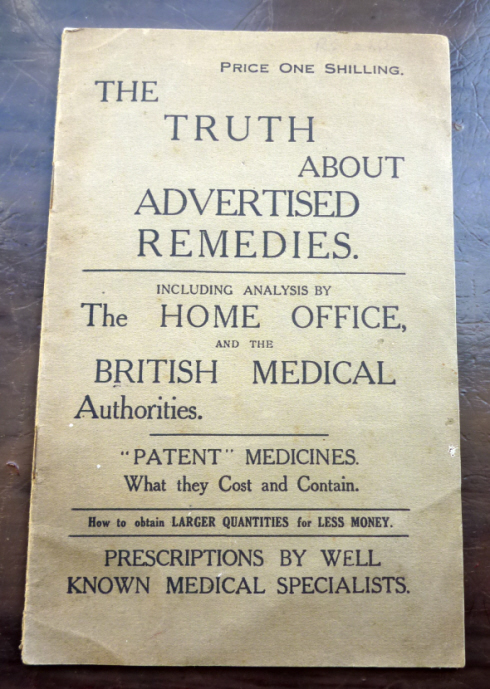 This 20-page booklet from about 1927 appears at first glance to be an official publication intended to raise public awareness of the ‘preposterous claims concerning so-called “patent” medicines, which are a disgrace to any civilised nation and a bar to human progress.’
This 20-page booklet from about 1927 appears at first glance to be an official publication intended to raise public awareness of the ‘preposterous claims concerning so-called “patent” medicines, which are a disgrace to any civilised nation and a bar to human progress.’
The cover’s references to the Home Office and the British medical authorities, together with the phrase ‘What they Cost and Contain’ unmistakably aligns it with the BMA’s famous exposé of secret remedies, but notice the line:
How to obtain LARGER QUANTITIES for LESS MONEY
Could it be there’s something else going on here? Within the booklet, lecturer and physio-therapeutist William T Davison, head of the Advertised Remedies Exposure Campaign, warns the public against ‘the rubbish that is so often advertised as “Cures”.‘ He goes on to list the formulae of numerous patent medicines, mostly famous brands that had stood the test of time – including Beecham’s Pills, Zambuk, Elliman’s Embrocation, Vick’s Vapour Rub and Eno’s Fruit Salt.
Davison is not out to condemn these products as useless. He acknowledges that many of them are popular because people feel they actually work. The Advertised Remedies Exposure Campaign’s problem with them is not their ingredients but the fact that they are sold at inflated prices. If only someone would help customers out by supplying generic versions at a bargain price…
Well, happily for the patent remedy purchaser, William T Davison was a pharmacist who could do exactly that! Each remedy in the booklet is given a corresponding prescription number so that the bargain-hunting client could order a non-branded version by post from Davison’s company, The British Pharmacies, in Thorpe Bay, Essex. The Advertised Remedies Exposure Campaign appears to have been just Davison himself, and the analyses he published were lifted from the BMJ and from the work of Sir William Willcox, senior analyst and medical adviser to the Home Office. The booklet hints at Davison’s career as a public health lecturer, but as the highlight was ‘some years of which I lectured in Hyde Park, London,’ it is possible that he was not on any particularly distinguished speaking circuits.
Some kudos is due to Davison for coming up with an unusual and convincing method of promoting his business – he does appear to feel strongly about the issue of patent medicines, and the service provided by his shop was useful. By publishing the remedies’ formulae, however, he made it easy for the punter to bypass The British Pharmacies and ask any local chemist to make up the required product. Davison’s bankruptcy in 1933 suggests that his promotional idea didn’t quite work out, but it was worth a try.
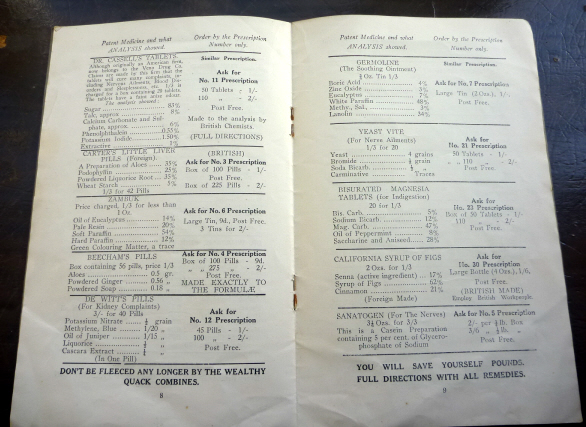
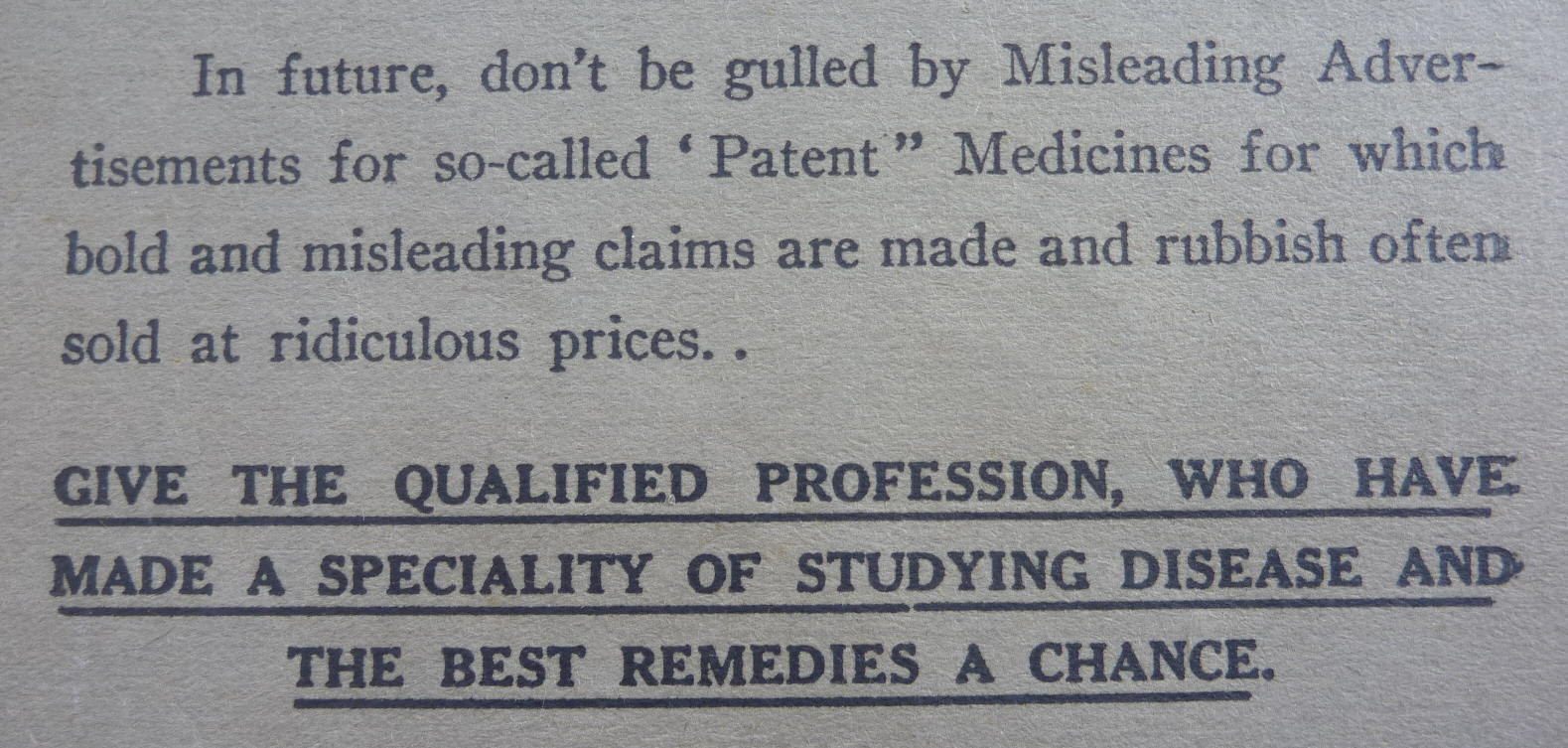
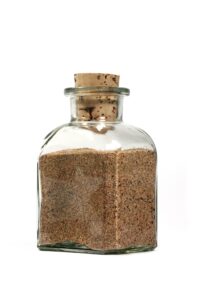
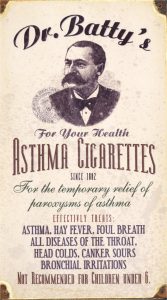
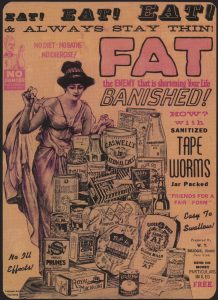
2 thoughts on “Don’t be gulled by misleading advertisements”
Comments are closed.